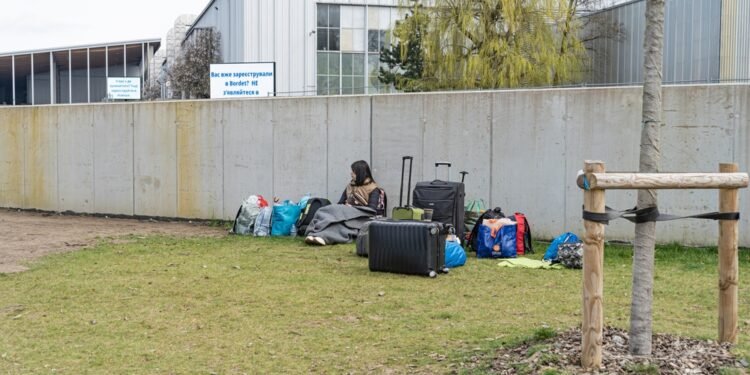Brussels, (Brussels Morning)- Six months after the start of the war, 6,000 Ukrainian refugees are still staying with host families in Brussels. The Region is opening plenty of its own reception capacity, but it is not yet full. In the first place, Fedasil sends the Ukrainians to Flanders and Wallonia, which now receive relatively fewer refugees. “We still have space, but the other regions have to do more,” says Brussels coordinator Pierre Verbeeren.
In recent weeks, the Brussels Region opened three reception hotels in Ixelles , Molenbeek and Saint-Gilles , which together account for 220 places. “There are currently only 140 places filled. So there is capacity left,” says BRUZZ. In the course of September, another four reception hotels and several empty offices will be added. “By the end of September we want to offer 2,000 reception places,” says Verbeeren.
That seems sufficient for the time being, because the Region usually only intervenes when the municipalities where the refugees are registered so request, says Verbeeren. “In municipalities such as Forest, Auderghem, Woluwe-Saint-Pierre and Woluwe-Saint-Lambert, there are enough host families today,” he explains. The Brussels platform Be My Guest still has about 500 free places with private individuals, should other families drop out. Several municipal initiatives, such as a rest home in Uccle, provide extra capacity. And of the more than 8,000 Ukrainians in Brussels, 2,000 have already found their own rental home, says Verbeeren.
Flow stops
This does not mean that extra reception is not welcome: 100 to 150 new refugees still arrive in our country every day. In the federal transit centre Ariane in Woluwe-Saint-Lambert, 692 Ukrainians are still waiting for a permanent place. The Belgian Red Cross-Flanders, which operates the centre, knows this. More than 60 percent of them have been staying there for more than 25 days, a tenth even for at least two months. The centre is not equipped for that, says the Red Cross.
However, the 700 or so Ukrainians cannot simply go to the free places in Brussels. This is due to the agreed distribution key between the three regions in our country. “Because Brussels already receives 17 percent of the refugees in our country, the federal government first sends the Ukrainians to the other regions,” says Pierre Verbeeren. The agreement is that Brussels should only receive 10 percent of all Ukrainians, Wallonia 30 and Flanders 60. “We just implement it, but don’t decide anything,” said Fedasil spokeswoman Lies Gillis.
Flanders and Wallonia
Every week, about 20 Ukrainians are led from the transit centre to Brussels host families or collective reception, Verbeeren knows. “So we try to help, but normally the other two regions have to do more,” says the Brussels coordinator. Where the refugees end up also determines who will guide them further to work or, for example, to a school for the children.
In De Morgen , Flemish Prime Minister Jan Jambon (N-VA) suggested on Monday that Wallonia in particular would provide too little supply. But places are also almost full in the Flemish cities of Antwerp and Mechelen, the newspaper writes. And despite the slight oversupply, a shortage of space is also not unthinkable in Brussels, for example when more host families drop out. The Region therefore wants, among other things, to convert part of the Ariane transit centre into more permanent reception, good for 400 places.




